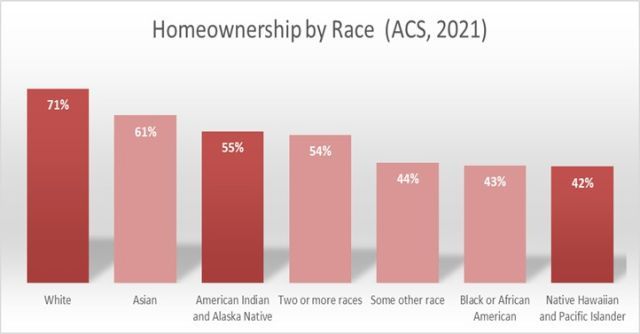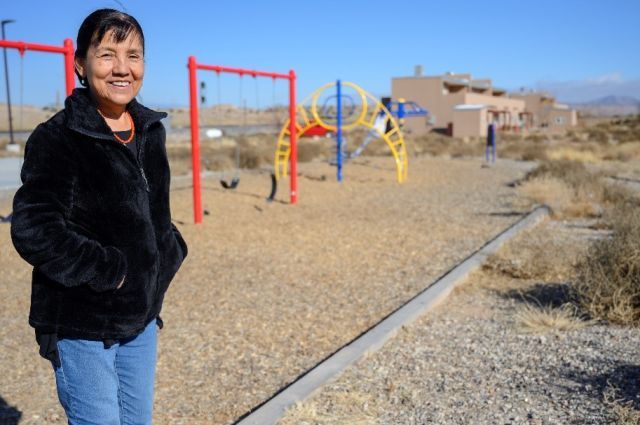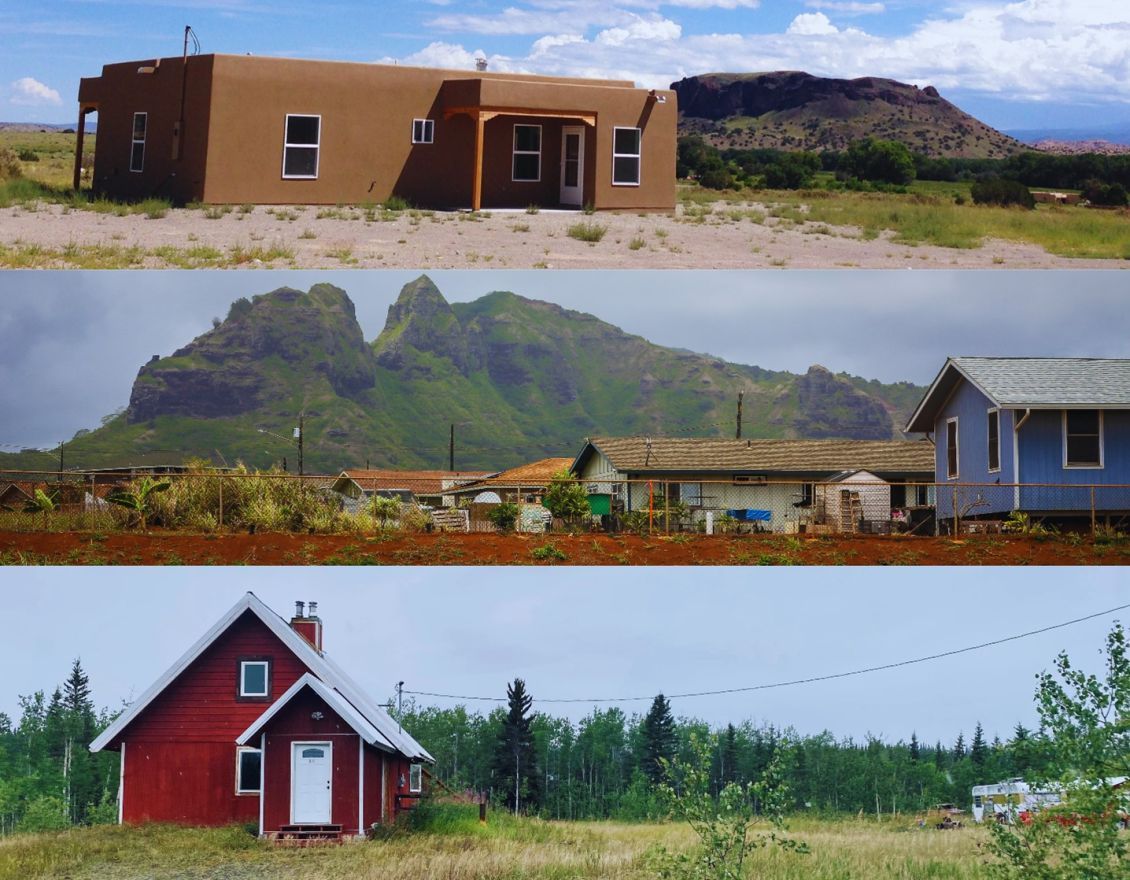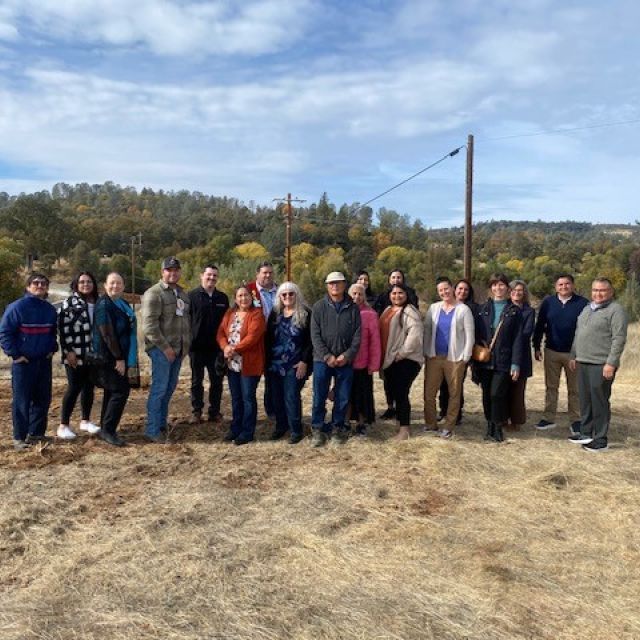In Native communities across the country, owning a home can provide a vital foundation to improve economic and social outcomes while protecting and preserving traditional values and culture. Homeownership enables Native American cultures to thrive within a supportive environment, as it strengthens the future for Native youth, elders, and adults by building resiliency - a cornerstone of every Tribal Nation.
Studies have shown that homeownership stabilizes neighborhoods and individual households while improving economic and social outcomes for generations. The right opportunities for homeownership on Tribal lands strengthen our workforce, help circulate dollars in the local economy, and enable Tribal citizens to work, play, and live on reservation land.
Native households face a unique and harsh reality while fighting to preserve both culture and home. American Indian, Alaska Native, and Native Hawaiian families are less likely than their Euro-American counterparts to own a home. Native Americans are more likely to live in dwellings that lack complete kitchens and bathrooms, have dangerous heating or electrical problems, or are structurally unsound. Additionally, 16% of American Indian and Alaskan Native households are experiencing overcrowding in Tribal areas, compared with 2% of the entire United States. Increasing the supply and quality of housing stock in Indian Country is quickly becoming the priority of public, private, and Tribal investments, facilitating economic development opportunities and improving the quality of life for our Nation’s first peoples.

Prior to European contact, Native communities operated under their own systems to govern the rights of citizens and communities to access territories and resources. Early agreements between incoming nations and existing tribes established a nation-to-nation relationship where trade, commerce, and peace were formalized in treaties. Multiple legislative acts and court case decisions since European settlement have created a complex land tenure system for the 574 federally recognized tribes, in which approximately 60 million acres of Native land are held in trust by the federal government. Tribal trust land is one of the most useful assets for Tribal Nations striving for improved community economic development. But navigating this often-complex policy landscape is one of the biggest challenges to homeownership for Tribal leadership, Native homebuyers, and developers looking to invest in Indian Country.
Recent policy trends at the federal level are providing Tribes with unprecedented opportunities for resources and continued investment, with Indian Country so far receiving over $45 billion in COVID-19 related funding. These allocations, in addition to the approximately $13 billion earmarked in the FY22 congressional budget for Tribal Nations, provide the backdrop for the robust growth of Tribal Enterprises and economic development in Native communities. As we work to rebuild strong Native commerce, homeownership becomes an anchor for Tribal communities. Housing is foundational to the resiliency and restoration of Tribal economies, communities, and families.
Enterprise is dedicated to nurturing homeownership in Tribal Nations because we envision a world where we don’t have to leave our communities just to have an equitable quality of life.
In 2022, Enterprise invested over $10 million in housing and community development with Tribal Nations through direct-support programs, technical assistance, and the strategic integration of public and private capital resources. The Tribal Nations team at Enterprise is working to strengthen relationships between Tribes and federal, state, and private lenders, and support the growth of Native homeownership coalitions in Native communities. We recognize that the governments and organizations of Indian Country are equal and valued partners in development, and we are proud to honor the federal trust agreement and the sovereignty of each Tribal Nation through our work.

As we celebrate Homeownership Month, the Tribal Nations team at Enterprise encourages everyone to learn more about Native housing, trust land, and the ongoing issues that impact Tribal Nations as they fight to serve their citizens. Here are a few suggested links:
- The Native American Housing Needs Study: Use this needs study from HUD to better understand ongoing conditions for housing in Indian Country.
- Tribal Leaders Handbook on Homeownership: Published with the help of Enterprise and aimed at Tribal leaders, this curriculum looks at housing development and homeownership strategies.
- Enhancing and Implementing Homeownership Programs in Native Communities: Created by Enterprise and for housing practitioners, this looks at the components of homeownership programming.
- Native Housing Developers Guide: Another interactive publication from Enterprise, this guide focuses on multi-family housing developments.
We credit the South Dakota Native Homeownership Coalition, the Tribal Homeownership Coalition of the Southwest, and the Montana Native Homeownership Coalition for their collective work to uplift and encourage Native homeownership in their regions while actively removing barriers and pursuing solutions that impact all Tribal Nations.
Finally, with a firm belief that no action is too small, we challenge everyone to create one action step within their ongoing work this month to help Native communities gain access to homeownership.

